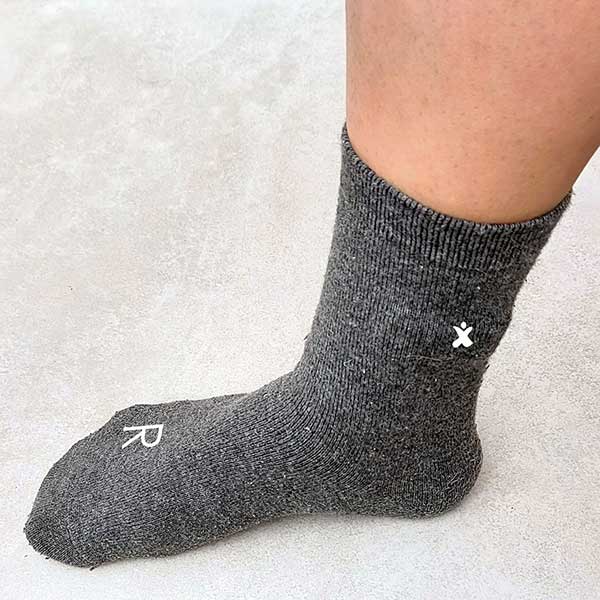‘Smart socks’ help protect people with dementia by tracking stress levels
The socks can track patients’ stress levels, heart rate and motion, reports Aisha Rimi


A PhD student has invented “smart socks” to help protect dementia patients by tracking heart rates, sweat levels and motion to sense if they are in distress before alerting their carers.
Dr Zeke Steer of Bristol University developed the technology after witnessing his great-grandmother become anxious and aggressive as a result of her dementia.
The innovation looks and feels like normal socks, and transmits real-time data to the app so carers can easily see if there is an increase in their patient’s stress levels.
Although current alternatives worn on wrist straps are available, Dr Steer and his team chose socks as the existing options can stigmatise or even cause more distress among patients.
“The foot is actually a great place to collect data about stress, and socks are a familiar piece of clothing that people wear every day,” said Dr Steer.
“Our research shows that the socks can accurately recognise signs of stress – which could really help not just those with dementia and autism, but their carers too.”
Dr Steer quit his job as a software engineer in the defence industry when his great-grandmother, Kath, began showing signs of dementia.
He decided to investigate how wearable technologies and artificial intelligence could help with her symptoms, and so developed the socks and a mobile phone app in conjunction. He studied for a PhD at Bristol Robotics Laboratory.
During his research, he volunteered at a dementia care home operated by the St Monica Trust.
Garden House Care Home Manager, Fran Ashby said: “Zeke’s passion was clear from his first day with us and he worked closely with staff, relatives and residents to better understand the effects and treatment of dementia.
“We were really impressed at the potential of his assisted technology to predict impending agitation and help alert staff to intervene before it can escalate into distressed behaviours.
“Using modern assistive technology examples like smart socks can help enable people living with dementia to retain their dignity and have better quality outcomes for their day-to-day life.”
It was while volunteering, Dr Steer came up with the idea of Milbotix, which he launched as a business in February 2020.
In 2019, there were over 850,000 people with dementia in the UK, according to the Alzheimer’s Society. That is expected to rise to over 1.5 million people by 2040.
Natasha Howard-Murray, senior innovator at the charity, said: “Some people with dementia may present behaviours such as aggression, irritability and resistance to care.
“This innovative wearable tech is a fantastic, accessible way for staff to better monitor residents’ distress and agitation.”
The company is in the process of trialling the socks with people living with mid to late-stage dementia, before bringing the product to market next year.






Join our commenting forum
Join thought-provoking conversations, follow other Independent readers and see their replies
Comments